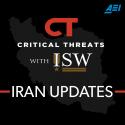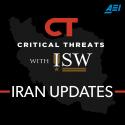Key Takeaways:
Iraq and Syria. ISIS likely is increasing large-scale operations, setting conditions to challenge regime control in some population centers. ISIS deployed more than 100 fighters in two separate operations in spring 2023, which indicates the group’s ability to coordinate between disparate elements to conduct sophisticated tactical efforts. ISIS is using its operations in the central Syrian desert to neutralize anti-ISIS forces in key areas. The group will gradually expand its attack zones into urban areas to coerce the population into supporting ISIS.
Burkina Faso. Al Qaeda–linked militants increased the rate and lethality of their attacks in northwestern Burkina Faso in May 2023 to strengthen and expand their support zone along the border of central Mali and northwestern Burkina Faso. The al Qaeda–linked group is using these support zones in northwestern Burkina Faso to expand toward the Burkinabe capital. The group will also use these zones to expand south along the Burkina Faso–Mali border to threaten southern Mali and Burkina Faso’s second largest city and economic capital in southwestern Burkina Faso.
Somalia. Self-admitted poor troop performance likely enabled al Qaeda’s Somali affiliate al Shabaab to overrun a Ugandan African Union base in southern Somalia in late May. The Ugandan contingent’s intelligence gaps and lack of close air support likely also contributed to al Shabaab’s success. Al Shabaab also overran a Somali National Army (SNA) base in central Somalia in late May, underscoring the continued vulnerability of holding forces in recently liberated areas of Somalia.
Pakistan. Pakistan may have postponed an anti-Tehrik-e-Taliban Pakistan (TTP) operation to focus on suppressing protests in early May. The removal of counterterrorism pressure on the TTP may permit the group to conduct attacks against sensitive targets in Islamabad, where the government is holding meetings to discuss the protest crisis. Local sources claimed the TTP is planning attacks on high-level political leaders in Islamabad.
Afghanistan. Iran and the Taliban rhetorically deescalated following border clashes amid an ongoing water dispute. Both sides took measures to reinforce the border and are likely prepared for future clashes but will seek to avoid instigating another round of skirmishes. The Taliban will likely seek to preserve its economic relationship with Iran by deescalating tensions along the border.









